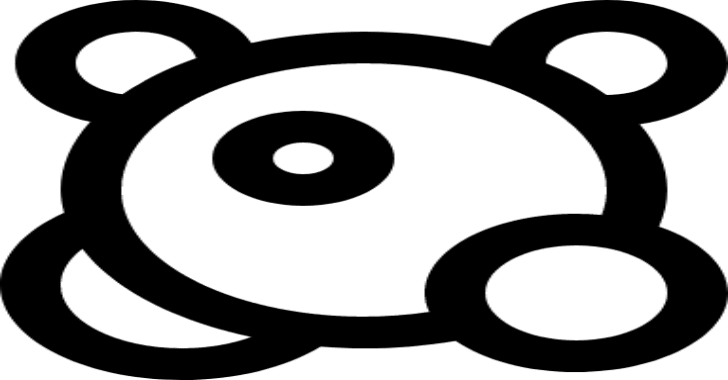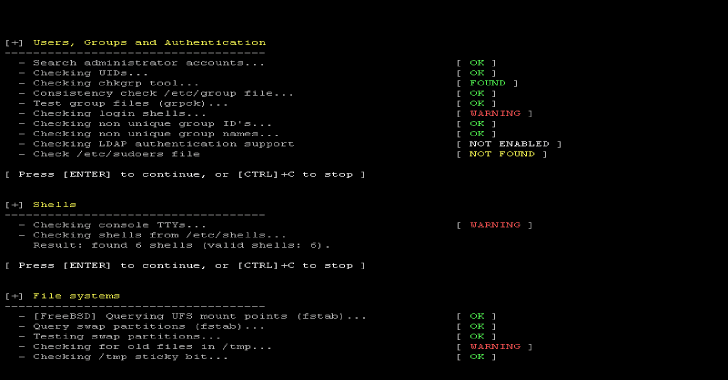Envizon is a tool designed, developed and supported by evait security. In order to give something back to the security community, we publish our internally used and developed, state of the art network visualization and vulnerability reporting tool, ‘envizon’. We hope your feedback will help to improve and hone it even further.
Use Case
We use envizon for our pentests in order to get an overview of a network and quickly identify the most promising targets. The version 3.0 introduce new features such as screenshotting web services, organizing vulnerabilities or generating reports with custom docx templates.
Core Features
- Scan networks with predefined or custom nmap queries
- Order clients with preconfigured or custom groups
- Search through all attributes of clients and create complex linked queries
- Get an overview of your targets during pentests with predefined security labels
- Screenshot Visualize all http-like applications of your targets using chrome-headless (selenium) – VNC soon™
- Save and reuse your most used nmap scans
- Collaborate with your team on the project in realtime
- Export selected clients in a text file to connect other tools fast
- Manage issue template and create vulnerabilities linked to hosts in the database
- Create customer reports with docx templates with one click
How to start?
To avoid compatibility and dependency issues, and to make it easy to set up, we use Docker. You can build your own images or use prebuilt ones from Docker Hub.
Using Docker
Docker and Docker Compose are required.
Prebuilt Docker Images
- Use the
docker-compose.ymlfrom thedocker/envizon_proddirectory and run it withdocker-compose up. - The Docker image will be pulled from
evait/envizon. - If you want to update the app image or pull it manually, you can do so with
docker pull evait/envizon. - If you want to provide your own SSL-certificates, modify the
docker-compose.ymlaccording to your needs, otherwise they will be generated.
For the lazy ones:
$wget https://raw.githubusercontent.com/evait-security/envizon/master/docker/envizon_prod/docker-compose.yml
$ echo SECRET_KEY_BASE=”$(echo $(openssl rand -hex 64) | tr -d ‘\n’)” > .envizon_secret.env
$ sudo docker-compose up
Running from local git checkout
$git clone https://github.com/evait-security/envizon
$cd envizon/docker/envizon_local
$echo SECRET_KEY_BASE=”$(echo $(openssl rand -hex 64) | tr -d ‘\n’)” > .envizon_secret.env
$sudo docker-compose up
Development
If, for whatever reason, you want to run the development environment in production, you should probably consider changing the secrets in config/secrets.yml, and maybe even manually activate SSL.
$git clone https://github.com/evait-security/envizon
$cd envizon/docker/envizon_dev
$sudo docker-compose up
Also Read – Maryam : Open-source Intelligence(OSINT) Framework
Usage
Set a password
After starting the docker images go to: https://localhost:3000/ (or http://localhost:3000 if not using SSL)
You have to specify a password for your envizon instance. You can change it in the settings interface after logging in.
Scan interface
On the scan interface you can run a new network scan with
preconfigured parameters or your own nmap fu. You also have the
possibility to upload previously created nmap scans (with the -oX parameter).
The scans are divided into smaller ones automatically to reduce the waiting time for results.
To specify scan destinations, you can use host names or IP addresses. IP addresses can be specified with or without subnet mask or CIDR prefix. To specify ranges, the individual parts of the IP can be separated with - or ,. These can be combined as desired. If the range is written out in full, only a - is permitted. Possible values as targets are:
scanme.nmap.org
192.168.1.1
192.168.1.0/24
192.168.1.0/255.255.255.0
192.168.1.1-192.168.1.10
192.168.1.1-192.168.10.254
192.168.1.0-192.168.10.0/24
192.168.1.0-192.168.10.0/255.255.255.0
192.168.1.1-10
192.168.1-10.1-10
192.168.1-10.0/24
192.168.1-10.0/255.255.255.0
192.168.1,2.1
192.168.1,2.1-10
192.168.1,2.0/24
192.168.1,2.0/255.255.255.0
Groups
The group interface is the heart of envizon. You can select, group, order, quick search, global search, move, copy, delete and view your clients. The left side represents the group list. If you click on a group you will get a detailed view in the center of the page with the group content. Each client in a group has a link. By clicking on the IP address you will get a more detailed view on the right side with all attributes, labels, ports and nmap output.
Most of the buttons and links have tooltips.
Global Search
In this section you can search for nearly anything in the database and combine each search parameter with ‘AND’, ‘OR’ & ‘NOT’.
Perform simple queries for hostname, IP, open ports, etc. or create combined queries like: hostname contains 'win' AND mac address starts with '0E:5C' OR has port 21 and 22 open. The portlist provides the port count for all clients and lets you quickly identify rarely used ports.
Images
This page renders the images of all ports with visible/interactive content captured by starting a new scan on the images/scan-interface. Actually only web-services are converted into a PNG files using selenium and chrome-headless. The scan interface has two functions:
- Re-Scan (check which port can be captured and add only new images)
- Re-Scan with overwrite (delete all images from the database and take a screenshot from all possible ports)
Using the left groups sidebar you can filter all images by group. Please note, that any on-change updates (e.g. someone deletes a group) are disabled on this page to avoid any disturbance on the manual image reviewing process.
Vulnerabilty management and reporting
In the templates section you can create issue templates you want to reuse for your reports. You can set a title, severity, description, rating and recommendation. In the reports section you are able to create reports for your customers. First, you have to create an issue group for example “Internal network”. In this group you can create new issues with the content of your issue templates and link them to existing clients in the database. You can easily add screenshots as proofs for your findings by using CTRL + v and pressing “update”. The templates are linked to the new issues and can be updated with one click. Under edit current report you can edit basic information about the report itself for example the name of the customer or a management summary. The presentation mode allows you to hide all items exept the issues and their screenshots.
In order to create a great looking report you have to edit the docx template file under ./report-templates/envizon_template.docx. All variables used are included in the default template.
Import / Export
The complete project / database can be exported in the settings.
To import an exported zip file, you can select and upload it in the settings as well.
NOTE: This will overwrite any data in your current project, including all stored images!
Importing an exported project creates a temporary file in your envizon container, which will be only fully imported once your container has been restarted! This can be achieved by running docker-compose restart envizon. An additional backup of the previous PostgreSQL will be created and placed in the db subfolder in your envizon container at this point.
FAQ
- API ?!
- Currently not. We will work on it. Maybe.
- Which browsers are supported?
- Latest Chrome / Chromium / Inox & Firefox / Waterfox / Librewolf.
- Why rails?!
- Wanted to learn ruby. It’s cool.
- Why so salty on github issue discussion?
- This is a community project. We are a full time pentesting company and will not go into / care about every open issue that doesn’t match our template or guidelines. If you get a rough answer or picture e.g. from a fully underwhelmed cat, you probably deserved it.
















